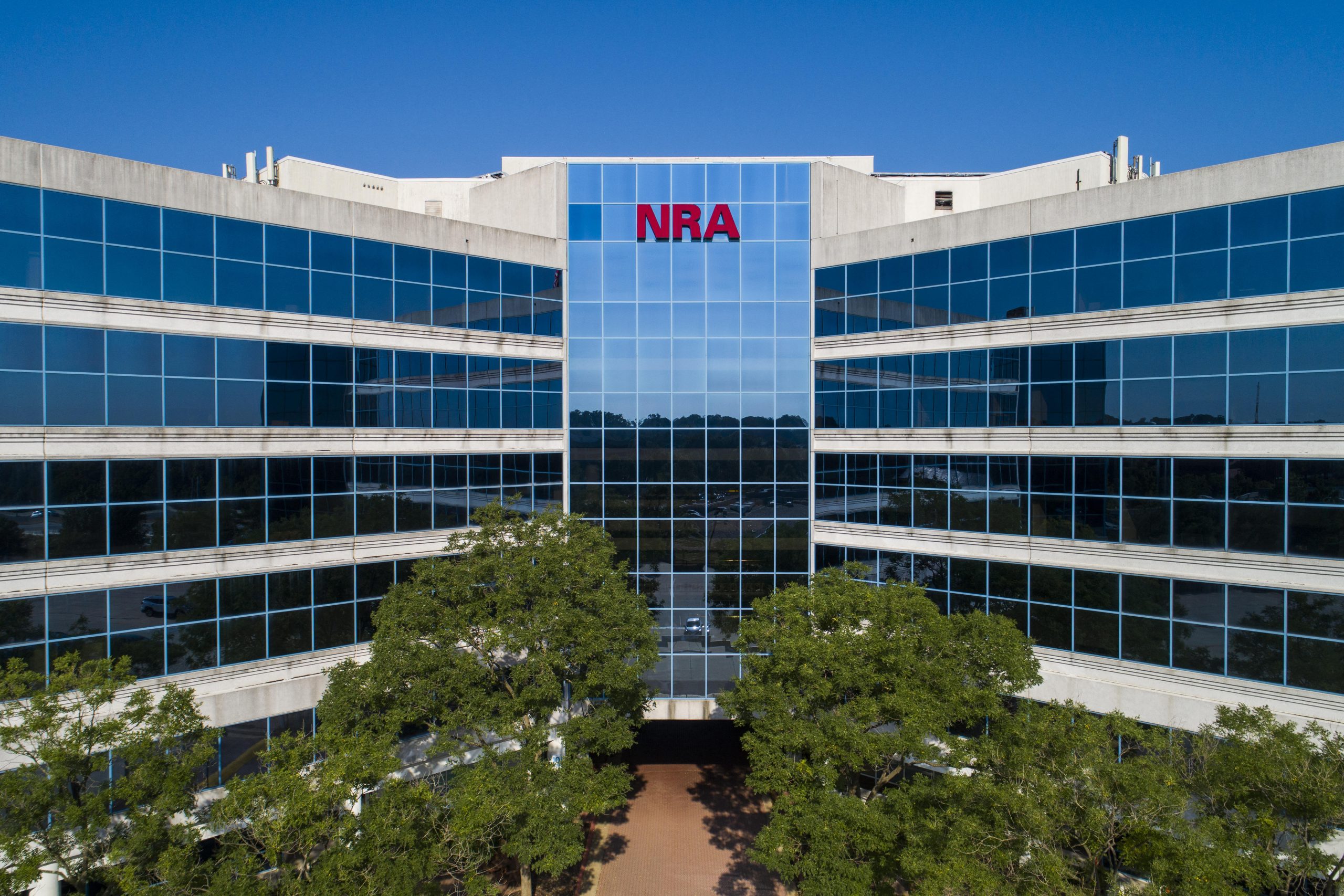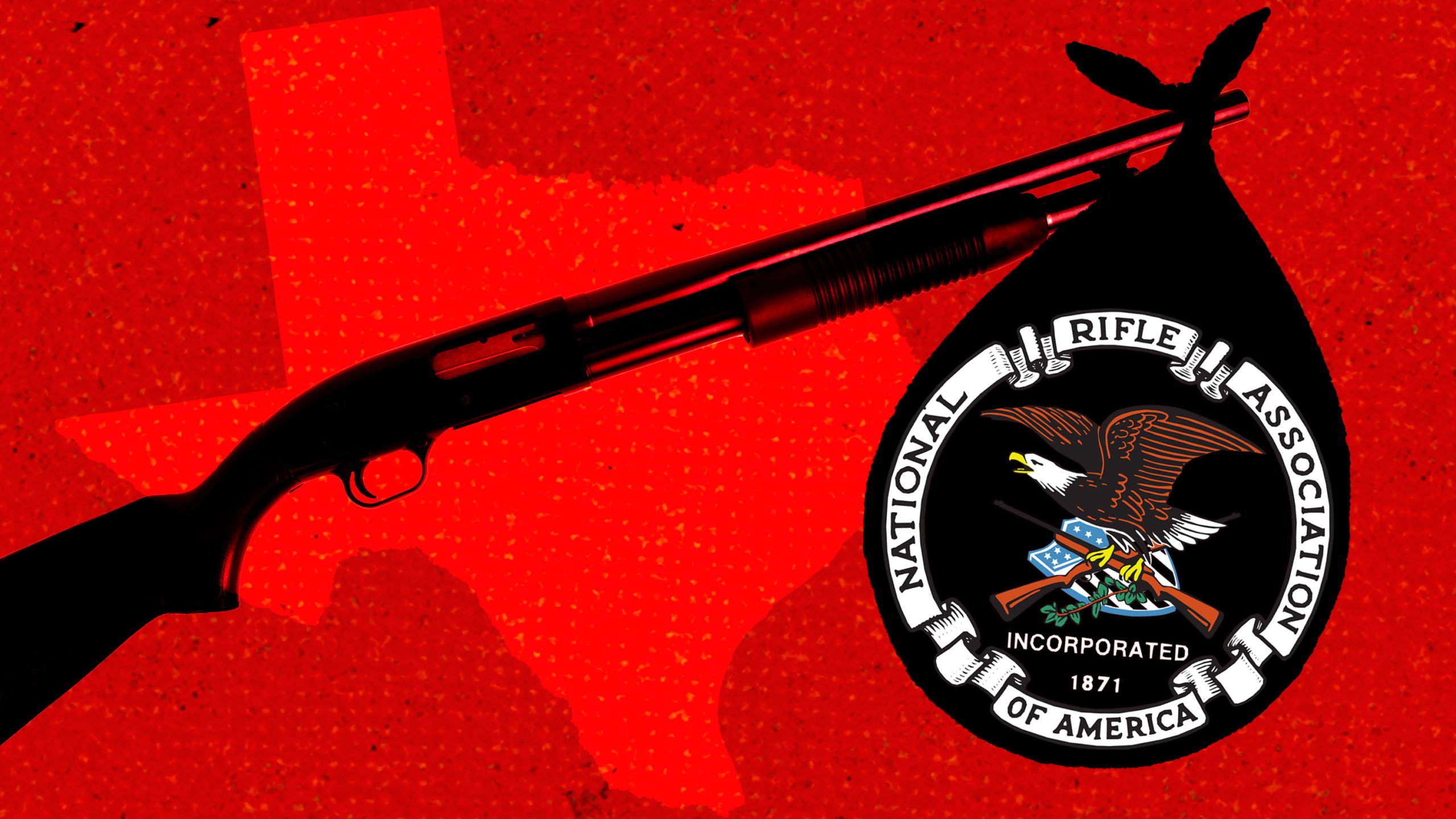In eight days of recent testimony before a Texas bankruptcy court, governance failures by the National Rifle Association’s board of directors came up repeatedly. Several directors implicated the board’s own counsel — William “Wit” Davis — arguing that he had acted in the interest of CEO Wayne LaPierre and his inner circle rather than the body he’s supposed to represent.
Documents obtained by The Trace suggest there’s cause for suspicion. On January 14, the day before the NRA filed for bankruptcy in Texas, Davis was busy coordinating last steps with Brewer Attorneys & Counselors, a law firm allied with LaPierre that drew up the bankruptcy plan.
In an email with the subject line “Charles’ Approvals,” Davis relayed support for pending bankruptcy actions from an NRA official with the initials CC — presumably Vice President Charles Cotton, a loyal LaPierre defender who also took part in final preparations for the filing. The sign-offs involved payment to a proposed bankruptcy consultant and an affiliate that the NRA, a New York corporation, had established in Texas to further its bankruptcy scheme.
Davis’s clients, the NRA board, had yet to be notified of — let alone approve — the bankruptcy.
The NRA’s bylaws call on directors to “formulate the policies and govern and have general oversight of the affairs and property of the association.” When New York Attorney General Letitia James filed suit against the NRA alleging that LaPierre and other executives had looted the nonprofit, she argued that the board had failed in that duty. In testimony before the bankruptcy court last month, board member Phillip Journey called the board “supine” and the NRA ”Wayne’s kingdom.” He testified that he was “shocked” by the filing and felt “misled.”
As The Trace has reported, the board met on January 7 and approved an employment agreement for LaPierre that included language the NRA says empowered him to file for bankruptcy. Journey testified that the failure to disclose the significance of the contract language and the imminent filing was a “flagrant violation” of professional conduct rules that require attorneys to communicate with clients and keep them informed. Once again, Davis was in the loop — along with attorneys for the Brewer firm, he attended the meeting.
Neither Davis nor the Brewer firm responded to requests for comment.
Before coming to the NRA in 2019, Davis had been general counsel to a thermal-imaging company that William A. Brewer III, the founder of Brewer Attorneys & Counselors, represented in litigation with Raytheon Technologies. Brewer’s influence over LaPierre and the NRA, as well as his extraordinary fees, have also been a focus of the bankruptcy hearings. Rather than provide independent legal guidance to the board, several members have suggested that Davis was installed to act as a proxy for Brewer and to shape the narrative provided to directors.
Board member Owen “Buz” Mills testified at an April 21 bankruptcy hearing that Davis had a “terrible conflict of interest” because he had come to the NRA by way of the Brewer firm, which was “deeply in the NRA’s pockets.” Davis did not represent his interests as a director, Mills said, but those of NRA executives who paid his salary. “I thought he did a lousy job,” Mills said of Davis. “I talked to him a couple of times, and it was difficult to get a straight answer.”
Mills, two more current board members, and one former board member have joined a motion that Journey filed in February requesting that an examiner be appointed in the bankruptcy to investigate allegations of malfeasance involving NRA leadership. The motion says Davis hampered directors who have tried to fulfill their oversight duties. “On one occasion,” the motion alleges, “the board’s attorney ostensibly told a board member to sit back, shut her mouth, stop asking questions, and trust that NRA management had everything under control.”
In July 2019, four board members requested an independent review of the financial misconduct allegations against NRA leaders and the fees being paid to the Brewer firm. In response, the board members received a letter defending Brewer and dismissing them as ill-informed. The letter, signed by NRA President Carolyn Meadows, also chided the members, suggesting that they had leaked their request to the media. “We will refrain from further discussion of these matters until the board meeting in September,” the letter states. “In the meantime, you are welcome to address your concerns individually with NRA Board Counsel Wit Davis.”
Three of the board members soon resigned in protest. One of them, Esther Schneider, joined Journey’s bankruptcy motion and testified on April 20 that, prior to resigning, she had put questions to Davis in writing — as he had requested — but got no response. Schneider said that when she continued to press, Davis told her “he had information that would clear up all of the misunderstanding and that I would see that everything was on track. And I did not believe that.”
On January 19, four days after the bankruptcy filing, board member Duane Liptak Jr., resigned, stating in a letter that “I am no longer able to effectively perform the duties of director with what I feel is the appropriate level of oversight.”
Rocky Marshall, a Texan who owns a trucking company, finished as first alternate in the 2020 board elections and assumed Liptak’s place on the day of his resignation. Marshall, who has joined Journey’s motion, sent a message in March to fellow board members arguing that NRA directors are potentially liable for failing to exercise their fiduciary duties. “I hope to encourage each of you to be fully engaged,” Marshall wrote. “Failing to act will guarantee our demise and is not an option for me.” In testimony on April 20, Marshall said that he tried unsuccessfully to get details from Davis about the NRA’s response to the allegations that Attorney General James had leveled against the organization. “I believe that Wit truly represents the management team,” Marshall said, “as opposed to representing the board.”
The emergence of this dissident bloc of directors marks a departure for a board accustomed to acting in lockstep with LaPierre. On the day Journey filed his motion, Meadows, the NRA president, disputed his claims in an email to the board. “I have presided over numerous NRA board meetings and assure you that every member of the NRA board is treated with respect,” the email states. “I find it disgraceful anyone would suggest otherwise to advance a personal agenda.” Meadows encouraged board members with questions to contact Davis.
Friction was evident during an emergency March 28 board meeting at which directors ratified the bankruptcy. Board member Marion Hammer, a LaPierre ally who collected $247,000 as an NRA consultant in the year before the filing, called Journey an “enemy,” according to Journey’s testimony. Bankruptcy counsel Pat Neligan, whose firm collected $1.4 million in NRA funds via Brewer Attorneys & Counselors over the six weeks prior to the filing, called Journey a “threat,” he said. Neligan did not respond to a request for comment, and Hammer could not be reached.
The NRA deposited $5 million in a Brewer firm trust account on January 6. A week later, Brewer partner Sarah Rogers emailed three board allies of LaPierre who comprise a litigation committee charged with overseeing legal matters in which the chief executive has conflicts. Rogers asked the three — President Meadows, Vice President Cotton, and Second Vice President Willes Lee — to sign an acknowledgment of LaPierre’s order to deposit $50,000 from the Brewer trust into an account set up for the Texas affiliate. “If you have any questions, please feel free to contact me,” Rogers wrote, “or (of course) seek advice from Wit.”
Early next week, a judge is expected to rule on whether to dismiss the NRA’s bankruptcy petition, appoint a trustee who would effectively assume leadership of the organization, or appoint the examiner sought by the break-away bloc of board members.


